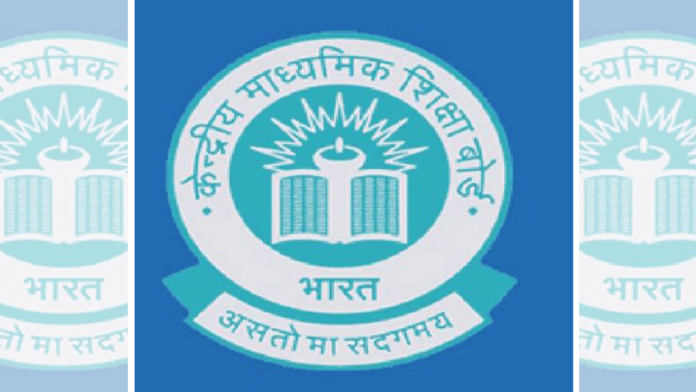New Delhi: The Central Board of Secondary Education (CBSE) has decided to prepare an extensive document on India’s contributions to mathematics, highlighting innovations from ancient, medieval, and modern times, and covering applications of Indian mathematics in fields such as astronomy and architecture.
It has also decided to revise the legal studies curriculum for Classes 11 and 12 to include the recent reforms in India’s legal framework.
These proposals were approved during the CBSE governing body meeting held in June, the minutes of which were released last week. The move is in line with the National Education Policy (NEP) 2020, which emphasises the integration of India’s knowledge traditions in the curriculum and the development of globally relevant learning materials.
According to the minutes of the meeting, the Board has decided to undertake the development of a comprehensive monograph, comprising 150–175 pages, titled ‘Bharatiya Ganit Parampara: India’s Contributions to Mathematics.’
The monograph will document key mathematical discoveries and innovations, highlight prominent personalities, schools of thought, and foundational texts such as the Sulba Sutras, Aryabhatiya, Brahmasphutasiddhanta, Lilavati, as well as notable contributions from the Kerala School of Mathematics.
“It will also explore the applications of Indian mathematics in fields such as astronomy and architecture. Additionally, the document will include translated original Sanskrit shlokas and source references to authenticate the material,” the minutes read.
The Board will form an expert advisory committee comprising historians of mathematics, Sanskrit scholars, mathematics educators, and academicians to guide the structure and content of the monograph.
“The monograph will be developed through an academic partner or agency selected through an open process, and will later be made available both digitally and in print for schools, students, and teachers,” the minutes said.
Revision of legal studies curriculum
As per the minutes, the Board has also decided to revise the Legal Studies curriculum for Classes 11 and 12 in line with recent legal reforms. These include the repeal of key colonial-era laws and the enactment of three new legislations: the Bharatiya Nyaya Sanhita (BNS), Bharatiya Nagarik Suraksha Sanhita (BNSS), and Bharatiya Sakshya Adhiniyam (BSA) in 2023–24.
These laws replace the Indian Penal Code (IPC), the Code of Criminal Procedure (CrPC), and the Indian Evidence Act, respectively. The government passed these reforms to modernise the criminal justice system and make it more citizen-centric and efficient.
“The Legal Studies textbooks for Classes XI and XII were introduced over five years ago to build foundational legal literacy among senior secondary students. Since then, India’s legal landscape has seen significant reforms,” a senior CBSE official told ThePrint.
“Accordingly, the Board has proposed a revision of the textbooks to include: key provisions of the BNS, BNSS, and BSA; landmark judgments and recent legal doctrines; and the removal of repealed or outdated laws such as sedition, Section 377, and triple talaq.”
The Board will form an expert committee, and a content development agency may be engaged for the revision process. “The updated syllabus and textbooks are expected to be ready for the 2026–27 academic session,” the official added.
(Edited by Tony Rai)
Also Read: ‘Honest history, not ideology’—NCERT social science panel chief on changes in Class 8 textbook







Great step, but it would only be meaningful if accompanied by a fundamental shift in mathematics education, viz. a shift away from abstract formal maths completely divorced from the empirical evidence (pratyakshapramāna) that all Bharatiya sciences including ganita hold to be the supreme kind of proof. Education must fully embrace ganita grounded in the philosophy of shūnyatā and accepting empirical proof as valid.
Also as a side note, the philosophy of our sciences needs to become Bharatiya too, e.g. free it from the mechanistic universe ideology and the tyranny of “method” (not arguing for science without method but against the imposition of one method grounded in Western philosophy).